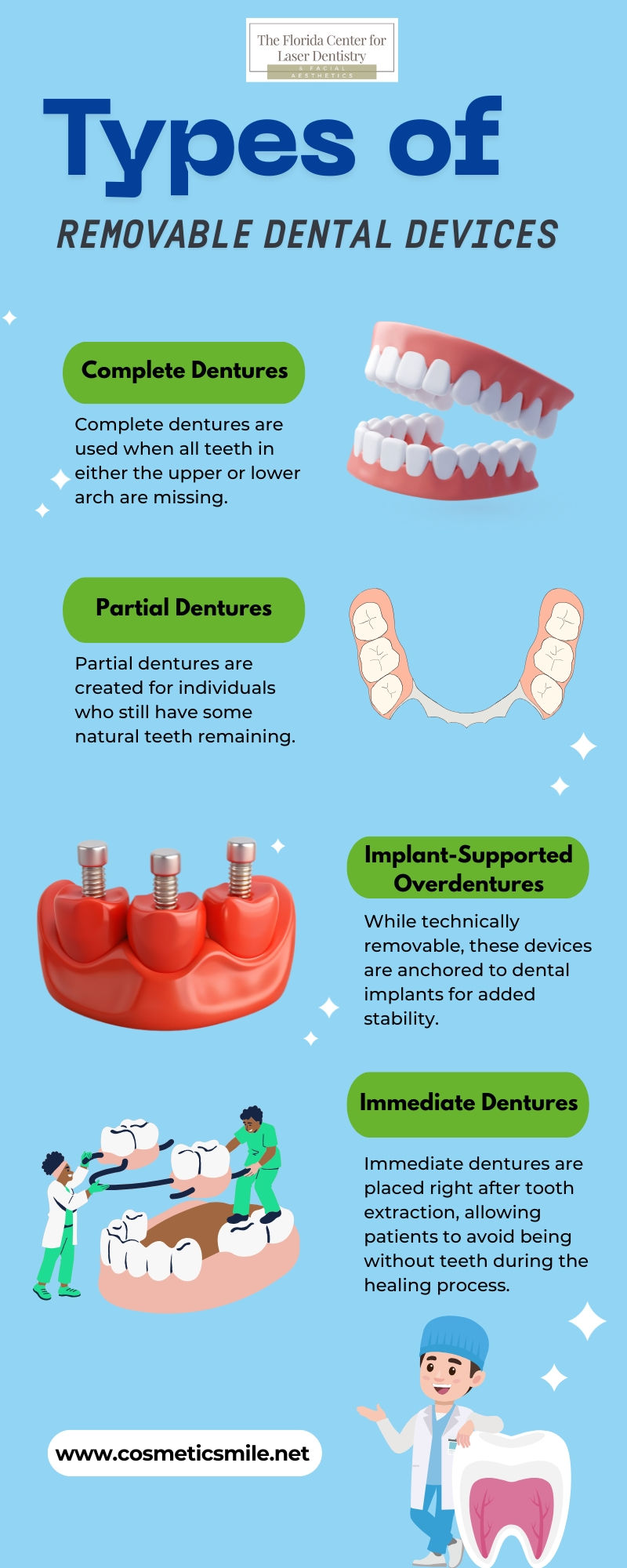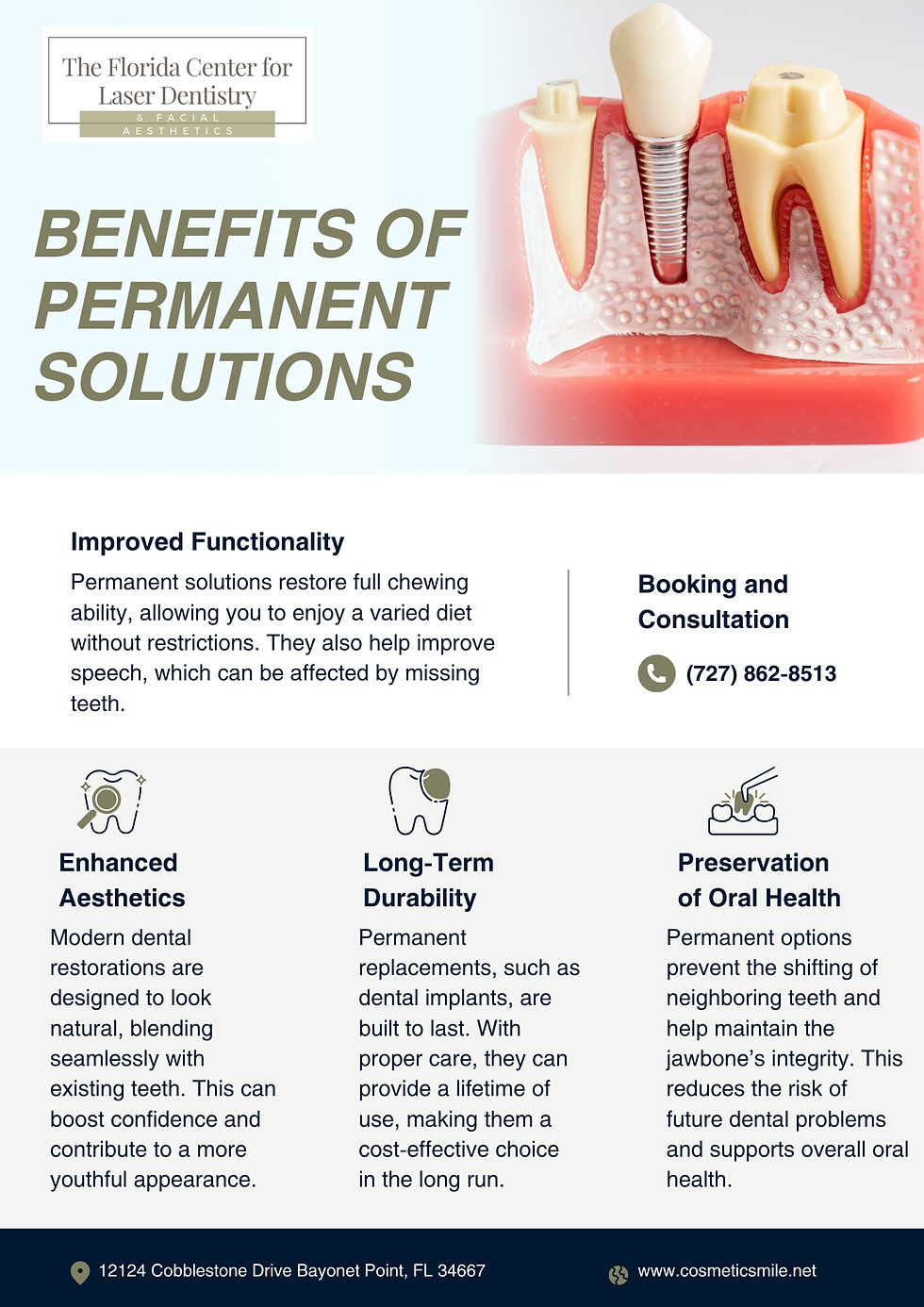The Key Benefits of Root Canal Therapy in Hudson
- Cosmetic Smile
- Sep 12, 2024
- 5 min read
When it comes to dental care, one of the most misunderstood and feared procedures is root canal therapy. For many, the mere mention of a root canal brings up images of pain and discomfort, but modern root canal therapy is a well-established, relatively straightforward procedure designed to save teeth and alleviate discomfort. This blog aims to demystify root canal therapy and provide a clear understanding of what it entails, particularly for those in Hudson seeking treatment.

What Is Root Canal Therapy?
Root canal therapy, also known as endodontic therapy, is a dental procedure that treats infection or inflammation within the pulp of a tooth. The pulp consists of nerves, blood vessels, and connective tissue that lie inside the tooth. When the pulp becomes infected due to decay, injury, or repeated dental procedures, it can cause significant pain and sensitivity. If left untreated, this infection can spread to other parts of the mouth and cause more severe health problems.
Root Canal Therapy Hudson: Who Needs It?
Patients in Hudson may require Root Canal Therapy Hudson if they experience persistent pain in a tooth, sensitivity to hot or cold, swelling of the gums, or tooth discoloration. Root canal therapy Hudson professionals use advanced techniques to identify the need for treatment and ensure the procedure is as comfortable as possible. Contrary to popular belief, root canal therapy is not the cause of pain; it is the solution to relieve the discomfort caused by the infected tooth pulp.
If your dentist recommends a root canal, it means the pulp has become damaged beyond the ability to heal on its own, and saving the tooth is critical to preventing further complications.
Signs You May Need Root Canal Therapy
To know whether you might need root canal therapy, it’s essential to recognize the signs and symptoms that often accompany pulp infection:
Severe Toothache: Continuous, throbbing pain that doesn’t subside could indicate a pulp infection.
Sensitivity: Pain or discomfort when consuming hot or cold beverages that lingers even after the stimulus is removed.
Swollen Gums: Infection often leads to swelling around the affected tooth.
Tooth Discoloration: A darkened tooth can be a sign that the pulp has been damaged or is dying.
Prolonged Tenderness: Pain when chewing or touching the tooth that does not go away with over-the-counter treatments.
If you experience any of these symptoms, it is essential to consult a dental professional in Hudson to determine whether root canal therapy is needed.
How Root Canal Therapy Works
Understanding how root canal therapy works can help ease the anxiety that often surrounds this procedure. The process generally involves three key steps:
Cleaning the Root Canal: The dentist first removes the infected or inflamed pulp tissue inside the tooth. This is done by creating a small opening in the crown of the tooth and using specialized tools to clean the root canals.
Filling the Root Canal: Once the canals are thoroughly cleaned, they are shaped and filled with a biocompatible material called gutta-percha. This prevents bacteria from re-entering and further infection.
Restoring the Tooth: After the root canal is sealed, the tooth typically needs a crown or filling to restore its strength and appearance. The restored tooth will function like any other, allowing you to bite and chew without pain or worry.
The Benefits of Root Canal Therapy
One of the most significant benefits of root canal therapy is that it saves your natural tooth. Tooth extraction, an alternative to root canal therapy, can lead to further complications such as shifting teeth, difficulty chewing, and changes in your bite. Keeping your natural teeth helps maintain the structure of your mouth and jaw, and with proper care, a tooth that has undergone root canal therapy can last a lifetime.
Root canal therapy also helps alleviate pain and restores oral health. Rather than living with the constant discomfort of an infected tooth, root canal therapy provides a permanent solution, allowing you to eat, speak, and smile with confidence once the infection is cleared.
Misconceptions About Root Canal Therapy
Many patients hesitate to undergo root canal therapy because of common misconceptions about the procedure. Let’s clear up some of the myths:
Myth 1: Root Canals Are Painful: Modern dental techniques and anesthesia have made root canal therapy relatively painless. Most patients report feeling little to no pain during the procedure, and any discomfort afterward can typically be managed with over-the-counter pain relievers.
Myth 2: It's Better to Extract a Tooth: While tooth extraction may seem like a quick solution, it can lead to long-term issues like shifting teeth, bone loss, and the need for more expensive treatments such as implants or bridges. Root canal therapy is usually a better option for saving your natural tooth.
Myth 3: Root Canals Cause Illness: Some outdated information suggests that root canals are linked to diseases elsewhere in the body. However, this myth has been debunked by decades of scientific research showing no connection between root canal therapy and systemic illnesses.
Post-Treatment Care for Root Canal Therapy
After completing root canal therapy, the tooth may feel sensitive for a few days, especially if there was pain or infection before the procedure. This sensitivity is usually temporary and can be managed with pain relievers recommended by your dentist.
It’s important to follow your dentist's aftercare instructions closely. In most cases, you’ll need to avoid chewing on the treated tooth until it has been fully restored with a permanent filling or crown. This ensures that the tooth remains protected and functional.
Proper oral hygiene—brushing twice a day, flossing, and attending regular dental checkups—will help maintain the health of your restored tooth and prevent future issues.
The Importance of Choosing a Skilled Professional
Choosing an experienced dentist in Hudson for your root canal therapy is crucial to the success of the procedure. The dentist's skill, the technology used, and your comfort level all play significant roles in achieving the best outcome.
When selecting a dental clinic in Hudson, look for professionals who have experience with root canal therapy, offer modern treatment techniques, and prioritize patient comfort. A consultation with your dentist can help you understand the process better and address any concerns you may have.
Root canal therapy is a highly effective procedure for saving teeth, eliminating pain, and restoring dental health. Though it may sound intimidating, modern advancements in dental care have made it a routine and relatively painless experience. If you’re experiencing symptoms of pulp infection or have been advised by your dentist to undergo root canal therapy, rest assured that this procedure can help you maintain a healthy, natural smile for years to come.
In Hudson, skilled dental professionals are ready to provide top-quality root canal therapy, ensuring that your teeth remain strong and healthy. By seeking timely treatment, you can avoid the complications of infection and enjoy the benefits of a pain-free, functional tooth.



Comments